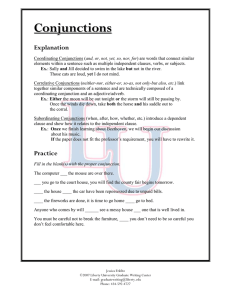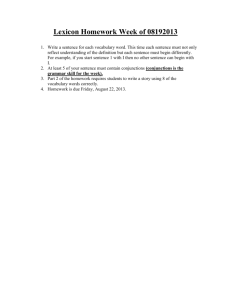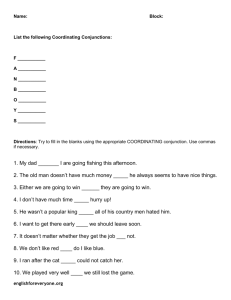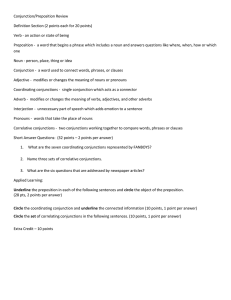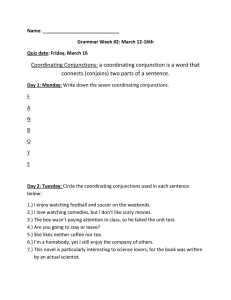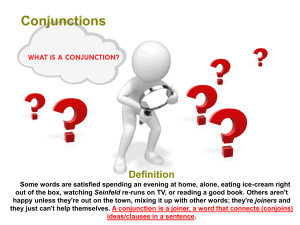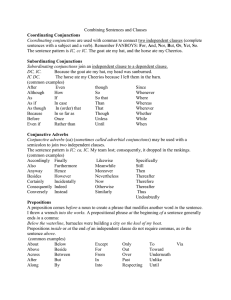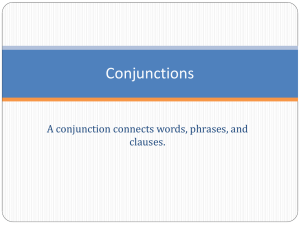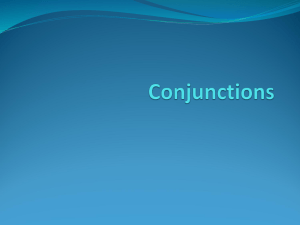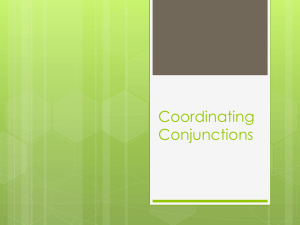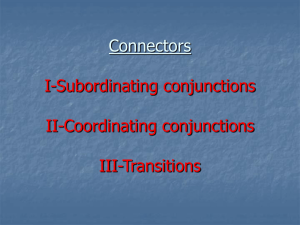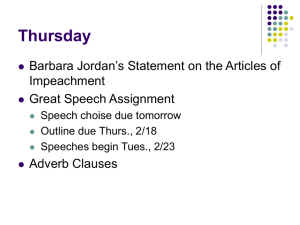Conjunctions
advertisement
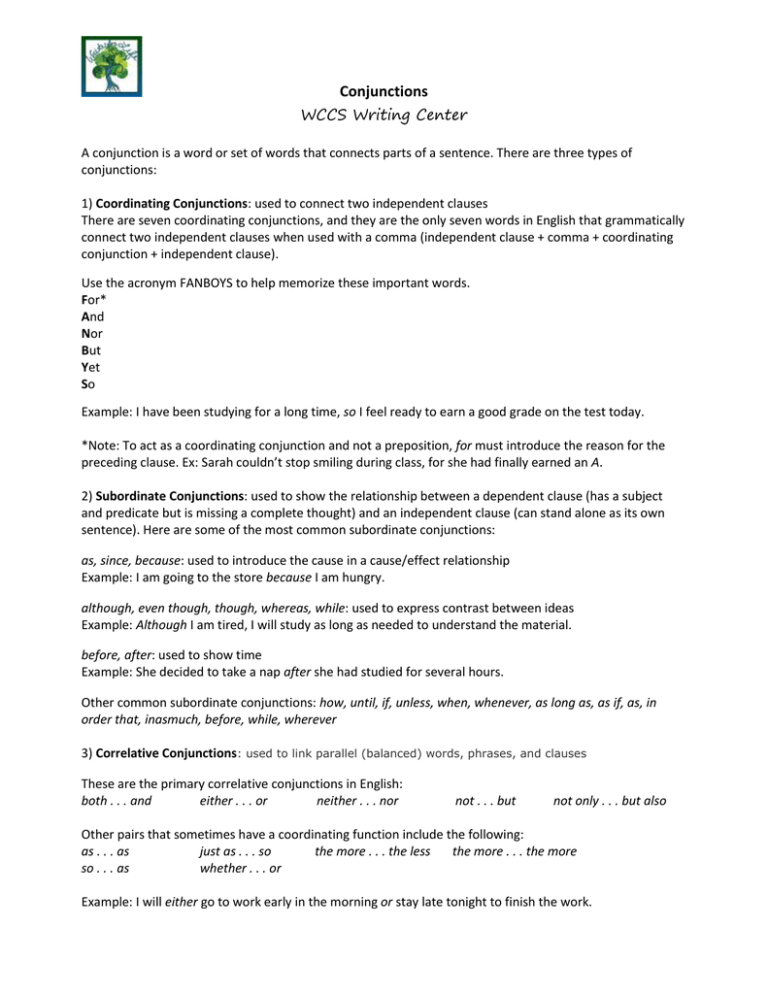
Conjunctions WCCS Writing Center A conjunction is a word or set of words that connects parts of a sentence. There are three types of conjunctions: 1) Coordinating Conjunctions: used to connect two independent clauses There are seven coordinating conjunctions, and they are the only seven words in English that grammatically connect two independent clauses when used with a comma (independent clause + comma + coordinating conjunction + independent clause). Use the acronym FANBOYS to help memorize these important words. For* And Nor But Yet So Example: I have been studying for a long time, so I feel ready to earn a good grade on the test today. *Note: To act as a coordinating conjunction and not a preposition, for must introduce the reason for the preceding clause. Ex: Sarah couldn’t stop smiling during class, for she had finally earned an A. 2) Subordinate Conjunctions: used to show the relationship between a dependent clause (has a subject and predicate but is missing a complete thought) and an independent clause (can stand alone as its own sentence). Here are some of the most common subordinate conjunctions: as, since, because: used to introduce the cause in a cause/effect relationship Example: I am going to the store because I am hungry. although, even though, though, whereas, while: used to express contrast between ideas Example: Although I am tired, I will study as long as needed to understand the material. before, after: used to show time Example: She decided to take a nap after she had studied for several hours. Other common subordinate conjunctions: how, until, if, unless, when, whenever, as long as, as if, as, in order that, inasmuch, before, while, wherever 3) Correlative Conjunctions: used to link parallel (balanced) words, phrases, and clauses These are the primary correlative conjunctions in English: both . . . and either . . . or neither . . . nor not . . . but not only . . . but also Other pairs that sometimes have a coordinating function include the following: as . . . as just as . . . so the more . . . the less the more . . . the more so . . . as whether . . . or Example: I will either go to work early in the morning or stay late tonight to finish the work.
